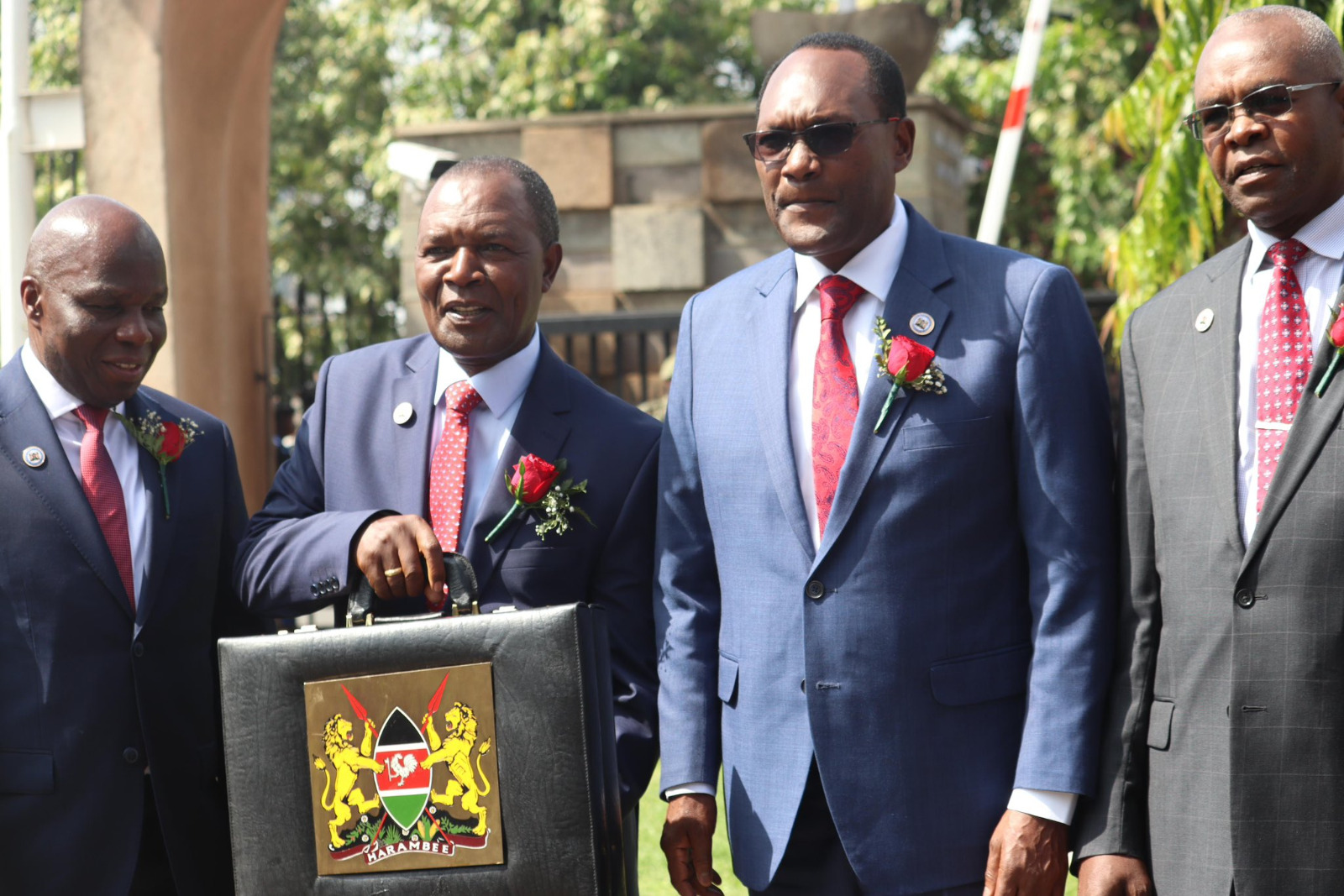The National Treasury and Economic Planning has announced a total expenditure amounting to Ksh 3.99 trillion for the 2024/25 financial year beginning July 1, 2024.
While presenting the budget statement before the National Assembly on Thursday, National Treasury and Economic Planning Cabinet Secretary Prof. Njuguna Ndung’u said the government plans to raise a total of Ksh 3.34 trillion equivalent to 18.5pc of the country’s gross domestic product (GDP) through revenue collection and appropriations-in-aid. Of this amount, the Kenya Revenue Authority (KRA) is expected to collect a total of Ksh 2.92 trillion in ordinary revenue.
Ministerial appropriations-in-aid will amount to Ksh 426 billion while the government expect a total of Ksh 51.8 billion or 0.3pc of GDP in grants from development partners.
Out of the total budget, Prof Ndung’u said recurrent expenditure will amount to Ksh 2.84 trillion while development expenditure including allocations to domestic and foreign financed projects, contingency fund and equalization fund will amount to Ksh 707.4 billion equivalent to 3.9pc of the GDP.
Counties are also expected to receive a total of Ksh 444.5 billion out which equitable share will amount to Ksh 400.1 billion.
In the second budget cycle under the Kenya Kwanza administration, Prof Ndung’u said the government has undertaken measure to rationalize spending to ensure the country cuts on commercial borrowing that has driven the country’s debt to the tune of Ksh 11.6 trillion.
“Mr Speaker given the projected revenue, grants and revenues against the projected expenditures, the fiscal deficit including grants is projected at Ksh 597 billion equivalent to 3.3pc of GDP and this is down from Ksh 925 billion or 5.7pc of GDP in 2023/24. In this respect, the primary balance will improve to a surplus of 2.3pc of GDP from a deficit of 0.4pc of GDP in the current financial year,” said Prof. Ndung’u.
To bridge the fiscal deficit in the next financial year the government will turn to external creditors to raise Ksh 333.8 billion while Ksh 263.2 billion will be raised from domestic sources. This comes as government seeks to turn to concessional borrowing, undertake debt swaps and other innovative ways to finance the budget.
“Kenya meets its obligations promptly and no debt arrears have been accumulated. Public debt is projected to remain within sustainable levels on account of fiscal consolidation path that reflects the decline in the ratio of debt to GDP in present value terms over the medium term. To improve Kenya’s debt sustainability and boost our credit rating position, the government will continue to implement measures to enhance growth of foreign exchange earnings,” said the CS.
Treasury further plans lower cost and risks of its debt portfolio in the medium term debt strategy by slowing down uptake of new external commercial debt. Kenya will explore raising new debt in the international bond market targeting Panda Bond, Samurai Bond and Sukuk Bond.
Prof Ndung’u outlined seven measures that will ensure efficiency of public expenditure as the government targets to reduce its recurrent expenses.
Treasury has proposed to cut allocations to Semi-Autonomous Government Agencies (SAGAs) by 30pc as part of austerity measures targeting all Ministries, Departments and Agencies (MDAs).
Prof Ndung’u also plans to curtail spending on foreign travels, restrict trainings by government institutions to within government institutions, rationalize all allocations for purchase of motor vehicles.
Public institutions will also have to suspending purchase of furniture for a period of one year, suspend all refurbishments and partitioning of government offices.
“Expenditure control measures that include, suspension of all new recruitment for the next one year, audit and cleanse all public payrolls, pension and transfers to the vulnerable, with a view to eliminate ghost workers as well as enforce payment of salary scales as approved or recommended by the Salaries and Remuneration Commission (SRC) and consolidation of public procurement for common user items,” he stated.
Other proposals to minimise expenditure include leveraging technology such as use of Wi-Fi and emails for efficient communication





